File Info
| Exam | Oracle Database Cloud Service |
| Number | 1z0-160 |
| File Name | Oracle.1z0-160.Pass4Sure.2019-02-27.51q.tqb |
| Size | 1018 KB |
| Posted | Feb 27, 2019 |
| Download | Oracle.1z0-160.Pass4Sure.2019-02-27.51q.tqb |
How to open VCEX & EXAM Files?
Files with VCEX & EXAM extensions can be opened by ProfExam Simulator.
Coupon: MASTEREXAM
With discount: 20%
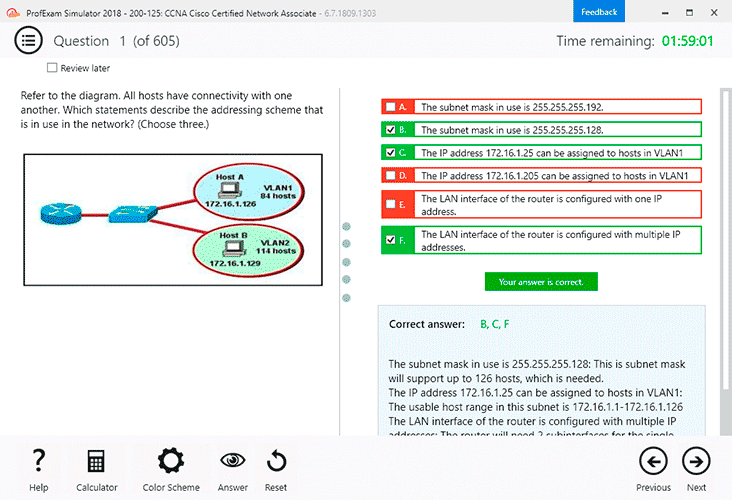
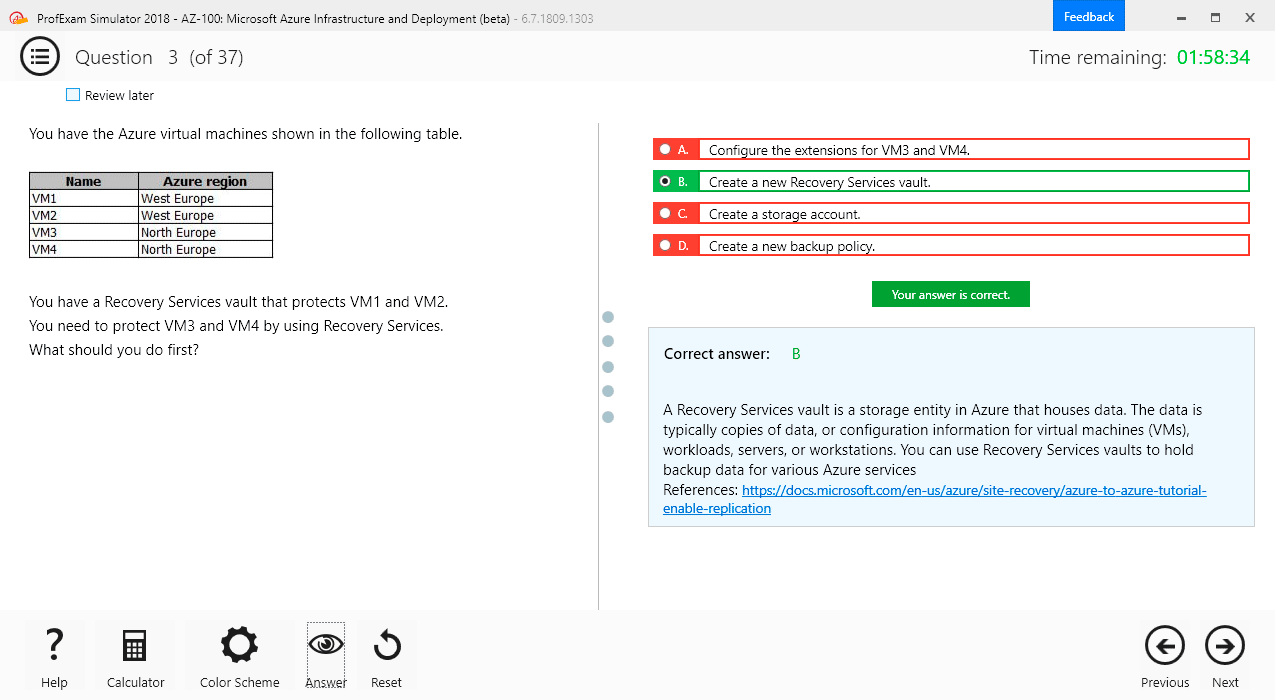
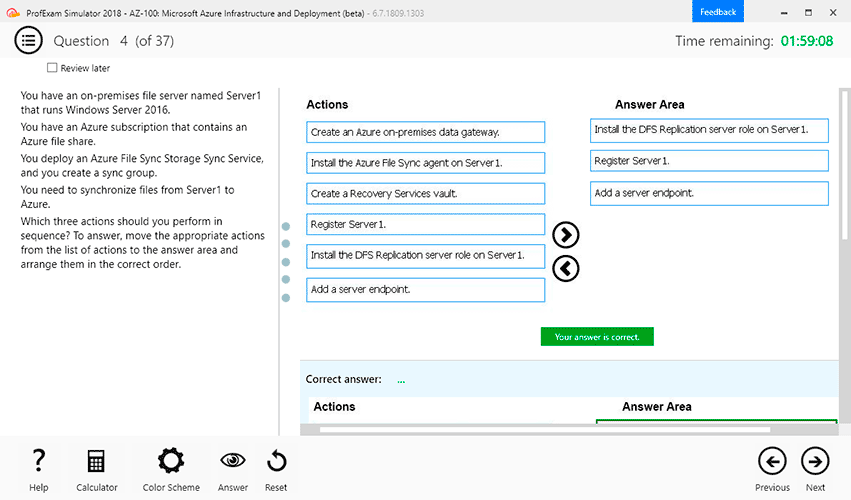
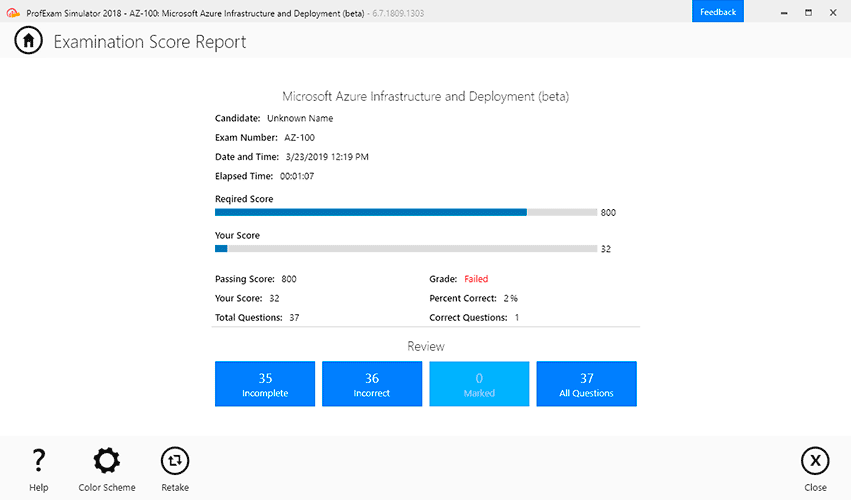
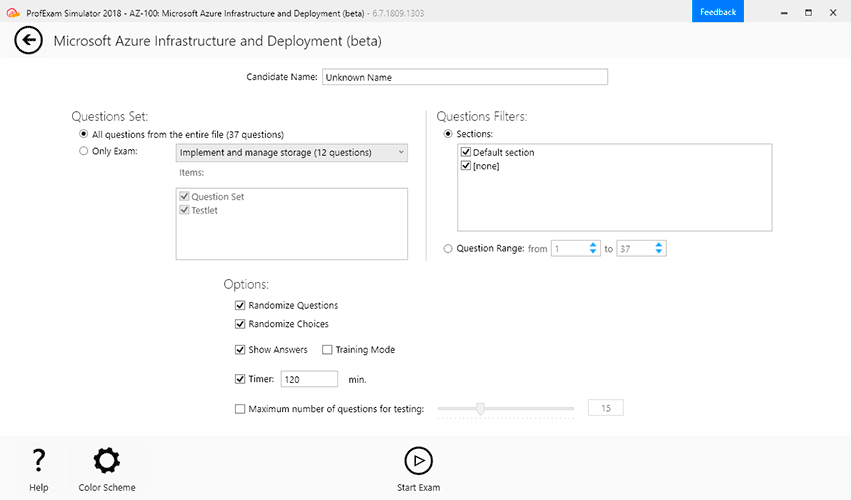
Demo Questions
Question 1
Which users are created and can be used for database and host management of your DBaaS database servers?
- root, opc and oracle users
- root, oracle and cloud users
- root and oracle users
- opc and oracle users
- cloud and oracle users
Correct answer: D
Explanation:
Linux user accounts that are provisioned on an Oracle Database Cloud Service deployment that hosts an Oracle Real Application Clusters (Oracle RAC) database:* opc The system administrator account you use to connect to the compute node using SSH. This user can use the sudo command to perform operations that require root-user access. * oracle The Oracle Database administrator account you use to access the system and perform non-root database administration tasks. * grid The Oracle Grid Infrastructure administrator account you use to perform ASM, ACFS, and clusterware administration tasks. * root The root administrator for the system. You do not have direct access to this account. To perform operations that require root-user access, use the sudo command as the opc user. References: https://docs.oracle.com/en/cloud/paas/database-dbaas-cloud/csdbi/linux-user-accounts-rac.html Linux user accounts that are provisioned on an Oracle Database Cloud Service deployment that hosts an Oracle Real Application Clusters (Oracle RAC) database:
* opc
The system administrator account you use to connect to the compute node using SSH. This user can use the sudo command to perform operations that require root-user access.
* oracle
The Oracle Database administrator account you use to access the system and perform non-root database administration tasks.
* grid
The Oracle Grid Infrastructure administrator account you use to perform ASM, ACFS, and clusterware administration tasks.
* root
The root administrator for the system. You do not have direct access to this account. To perform operations that require root-user access, use the sudo command as the opc user.
References: https://docs.oracle.com/en/cloud/paas/database-dbaas-cloud/csdbi/linux-user-accounts-rac.html
Question 2
Which two situations require that your Database Deployment be scaled up?
- The Database Deployment instance is maxed out on semaphore sets.
- The database instance has reached the limit in the license_max_sessions database parameter.
- The Database Deployment is maxed out on CPU.
- The database instance is out of space in the sysaux and system tablespaces.
- The Database Deployment is maxed out on storage.
- The Database Deployment is maxed out on semaphores.
Correct answer: CE
Explanation:
Existing DBCS instances may scale up to bigger shapes in OCPU, Memory and Storage for vertical scaling. For horizontal scaling, DBCS provides RAC with the Extreme Performance option currently allowing applications to scale up to 2 nodes, each with a max of 16 OCPU shapes. Note: An Oracle CPU (OCPU) provides CPU capacity equivalent of one physical core of an Intel Xeon processor with hyper threading enabled. Each OCPU corresponds to two hardware execution threads, known as vCPUs.References: https://cloud.oracle.com/opc/database/faq Existing DBCS instances may scale up to bigger shapes in OCPU, Memory and Storage for vertical scaling. For horizontal scaling, DBCS provides RAC with the Extreme Performance option currently allowing applications to scale up to 2 nodes, each with a max of 16 OCPU shapes.
Note: An Oracle CPU (OCPU) provides CPU capacity equivalent of one physical core of an Intel Xeon processor with hyper threading enabled. Each OCPU corresponds to two hardware execution threads, known as vCPUs.
References: https://cloud.oracle.com/opc/database/faq
Question 3
How would you enable a port persistently to keep communication always open through that port?
- You would require access to the Oracle Compute Cloud Service console to open the ports to a set of IP addresses.
- You must contact your Oracle Database Cloud Service support team to update the port specifications for use.
- All ports that are available in Oracle Database Cloud Service servers must use an SSH tunnel and cannot be enabled persistently.
- You can use server certificates to map a server’s identity to enable persistent connection through a port to a Database Deployment’s compute nodes.
Correct answer: D

